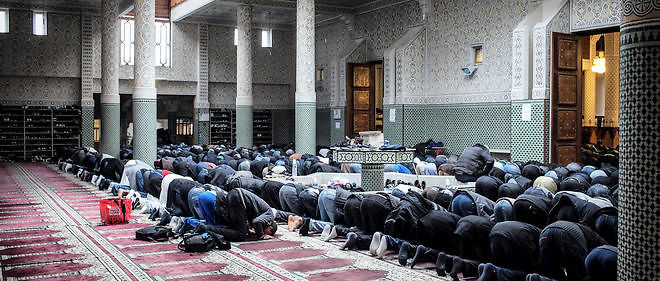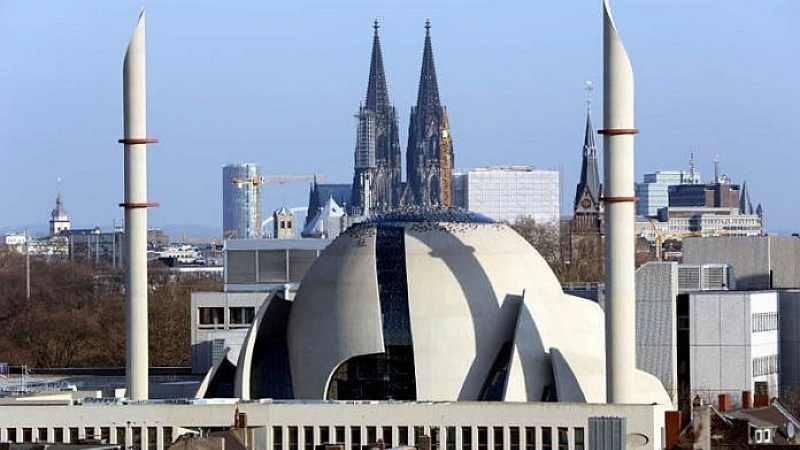Following the recent attacks on French soil several politicians have proposed measures to reform Islam’s structure and the financing of Islam in France. For Nathalie Goulet, UDI senator from Orne who recently published a report on foreign financing, the priority should be to end the practice of ‘supplied’ imams and to establish a foundation to centralize Islam’s financing in France.
Le Monde: Foreign countries are often criticized for their influence on Islam in France. Is it true?
Nathalie Goulet: The influence of certain countries came as a great surprise to many when our report was published. But it’s not always those that we think that have the greatest presence. The Gulf countries are much less influential than the ‘countries of origin,’ Algeria, Morocco, and Turkey. These three states exercise a real influence by financing the construction of buildings and schools, imam training, and supplying imams for France’s mosques—who are paid by their countries of origin—and through the governance of the French Council of the Muslim Faith.
Le Monde: Manuel Valls said he was in favor of a temporary suspension of financing from foreign countries. Do you agree?
Goulet: The Prime Minister speaks of suspending foreign financing, but who will be their replacements? While one could hope that there would be no more foreign financing, it would be a mistake to think that the problem could be solved just like that. The question of foreign financing is ancillary. The Louvre or the Arab World Institute also receive foreign funding, in a transparent manner. Before anything, we must work to end the practice of ‘supplied’ imams who are trained in Morocco.
Le Monde: According to the report there are 301 imams sent from other countries for around 2,500 places of worship. Where is the problem?
There are 301 opportunities, for French citizens of Muslim faith, to assist with sermons led by imams who are not French and from foreign countries. It’s more problematic than foreign funding of mosques. Imams sent from Turkey, for example, arrive under the title of “social workers” and not as imams. They barely speak French, have never seen an Armenian in their life, and don’t know that in France we recognize the Armenian Genocide. The majority of supplied imams have never received an education on the Holocaust, the death penalty, homophobia…they don’t know these important contextual references, but they play a role in communities.
Le Monde: Why is the question of financing critical?
Goulet: We consider Islam to be a religion like any other, but we don’t provide it with the means to be. Islam is a recent religion in our territory. There is a need for catch-up compared to other religions. The Muslim communities need structure, schools, mosques, and associations. Muslims need to be able to practice their religion decently.
Today, if a 14 year-old girl wants to wear the veil, she is going to find an Islamic school, but there are few. A Jewish child who wants to keep Kosher and wear a kippa will find a Jewish school. The tensions are more pronounced in Muslim communities because they don’t have all the tools to practice their religion.
Le Monde: What are the paths for financing Islam in France? What do you think about the idea of re-launching a ‘foundation of French Islam’ discussed by Manuel Valls?
Goulet: We must revive the Foundation for Islamic Works to monitor foreign funds. This foundation must have a joint government with a representative from the State Council and an accountant from the Treasury. We must also implement cost accounting so that Algerian money is used for Algerian places of worship, money from Morocco is used for Moroccan places of worship…it’s necessary if we want the communities to agree to this foundation. Algerians don’t want to pay for Turks, and vice versa, even if the idea of an Algerian place of worship makes no sense in France.
Le Monde: Julien Dray, Nathalie Kosciusko-Morizet and Francois Bayrou support instituting a “halal tax” to finance Islam in France.
Goulet: Legally, it’s impossible to institute a tax on a religious item…and technically, a ‘halal tax’ would also be impossible to institute in practice, because there is no consensus on the notion of halal.
What could be possible is that religious representatives themselves institute a private fee for services relating to slaughter, which would be set by the community, collected, and sent to the Foundation.
Le Monde: Aside from financing, is there a representation problem?
Goulet: Establishing the CFCM was necessary, there needs to be an interlocutor with the State. But throughout the years, this body has never succeeded in being representative. If I was president of the CFCM, I would open up a debate, I would establish constituent assembly to review the statutes, I would call on youths and members of associations, who may feel excluded, I would institute the principle of one man, one woman, one vote…But that must come from Muslims themselves. Maybe one day, young Muslims will launch an online petition and create a concurrent association.
Sources
Click here to read the Senate Report.
http://www.lemonde.fr/religions/article/2016/08/01/on-ne-reglera-pas-les-problemes-de-l-islam-en-france-en-suspendant-le-financement-etranger-des-mosquees_4977157_1653130.html






